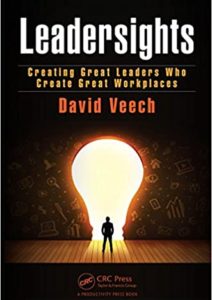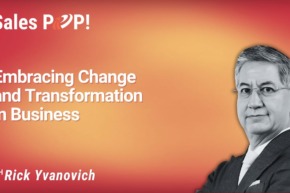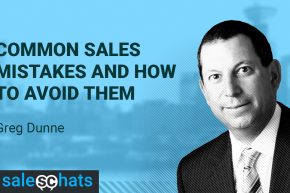Do you want to go back to normal? Well, think twice, because normal may be gone.
Performance-wise, if we actually start getting back to normal that would simply be a regression. A lot of things that can be done in the same way as before the crisis, they could actually be done more poorly after the crisis.
We experienced a new way of working – creating new ways of communicating, new approaches, settings, and just creating different but great value. When restrictions are lifted, we end up ending these innovative processes and structures and just going back in time.
Who wants to go back in time, really?
This expert sales interview explores:
- What did we learn workwise during the crisis?
- How can we reach the best work-life balance?
Being productive
It’s all about finding innovative ways to be efficient. We do have a temptation when this is over.
We can forget all the great stuff we learned and go back the way things were.
So, what should we adopt that we learned during this major crisis? For example, say video conferences, we do have practice in it, and we can adjust our travel habits and our carbon footprint. This can be a relationship and a collaborative tool rather than a functional tool. You can build deeper relationships with people you don’t actually see – especially when we work from home, you get to know the people you work with, they get interrupted with kids, you see their personal space, etc.
Well, that’s a great way to build trust. We can still be productive without physically being at the office. We don’t need 9-5 hours, we can still deliver value. It should be the thing of the past.
Is there happiness in flexibility?
Employees are happier now and the quality of life is the key as well as the work-life balance.
Flexibility – moving away from a traditional, from everything we knew. It’s all about serving the needs of the global economy – the customers will be more satisfied when employees are. Being away from the workplace doesn’t mean you can’t solve problems you had onsite. Communicating through video rather than email has a great impact, and it’s more likely that people will listen and have a positive image of leadership management presents.
The most important thing that affects effective communication is trust. When we know that we can clearly communicate our expectations, those can be met.
Our Host
John is the Amazon bestselling author of Winning the Battle for Sales: Lessons on Closing Every Deal from the World’s Greatest Military Victories and Social Upheaval: How to Win at Social Selling. A globally acknowledged Sales & Marketing thought leader, speaker, and strategist, he has conducted over 1500 video interviews of thought leaders for Sales POP! online sales magazine & YouTube Channel and for audio podcast channels where Sales POP! is rated in the top 2% of most popular shows out of 3,320,580 podcasts globally, ranked by Listen Score. He is CSMO at Pipeliner CRM. In his spare time, John is an avid Martial Artist.








Comments